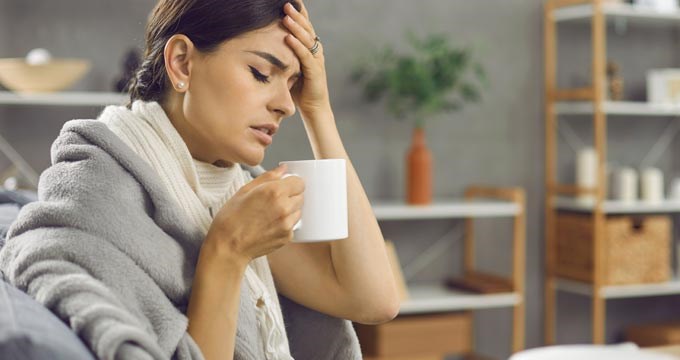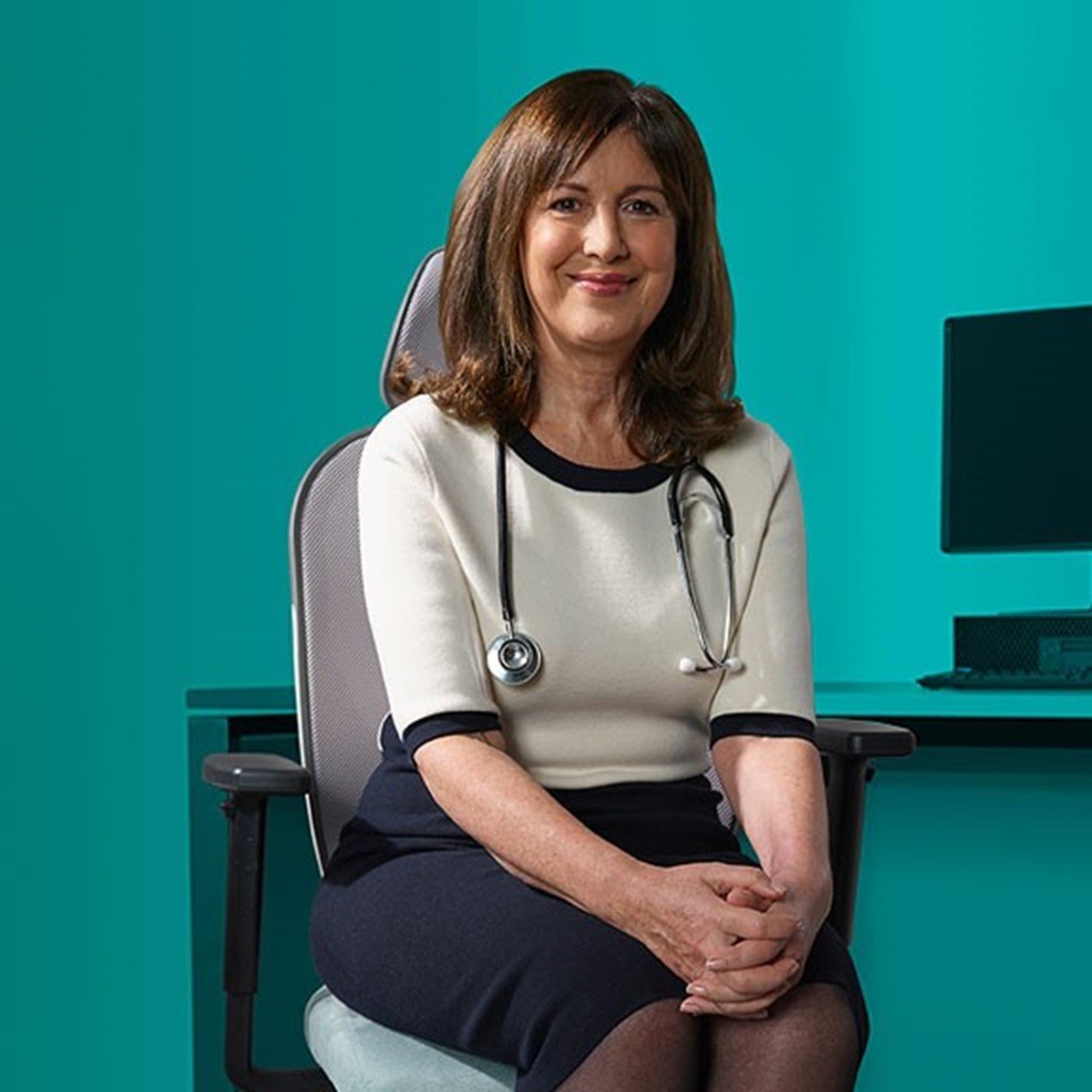Sleep deprivation refers to not getting enough good quality sleep. Broadly speaking, if you persistently fail to get seven to nine hours of sleep every night, then you may be sleep deprived.
Sleep deprivation can be short term or chronic (long term) and can have a wide range of effects on your health and wellbeing. Here, we will explore the signs, causes and consequences of sleep deprivation, as well as how it is treated. But first, how is sleep deprivation different from insomnia?
Sleep deprivation vs insomnia
If you have sleep deprivation, you’re able to fall asleep when you go to bed but your sleep is either too short or interrupted. This may be due to caring for a newborn baby, shift work or working long hours, or lifestyle choices.
If you have insomnia, when you go to bed, you either fail to fall asleep or fail to stay asleep eg you may wake up and then be unable to go back to sleep.
Signs of sleep deprivation
The most common and noticeable signs of sleep deprivation are frequent yawning, feeling sleepy and falling asleep during the daytime. You may experience microsleeps, which are brief unintended episodes of sleep that you may not notice as they last 15 seconds or less.
Sleep deprivation can also lead to other signs that you may not link to a lack of sleep. It can lead to difficulty concentrating, following a conversation and replying, and performing everyday tasks at work or home — the latter is referred to as impaired cognitive function.
Your reaction times slow down, which can be a safety hazard when driving or operating heavy machinery.
A lack of sleep also causes mood changes; you may be more irritable and feel anxious. It can affect your appetite too. In most cases, it leads to overeating and food cravings, although it can also cause nausea that consequently reduces your appetite.
As your immune system is most active at night, sleep deprivation also weakens your immune system. You may, therefore, notice that you more frequently get colds and chest infections.

Causes of sleep deprivation
Sleep deprivation can be caused by work and lifestyle factors as well as medical conditions.
If you work long or unsociable hours, socialise late into the night, wake up frequently to care for a baby or loved one, stay up using digital devices, or drink alcohol in the evenings, your sleep can be disrupted leading to sleep deprivation.
Although some people find alcohol can help them fall asleep, alcohol lowers the quality of your sleep, making it more likely that you will wake up frequently and struggle to fall back asleep.
Sleep disorders, such as restless leg syndrome and sleep apnoea, as well as other health conditions, including chronic pain, a persistent cough, depression, anxiety and stress, can also lead to sleep deprivation.
Side effects of certain medications can disturb your sleep too. For example, thyroid hormone (if given in excess), which is used to treat hypothyroidism; theophylline, which is used to treat asthma; and selective serotonin reuptake inhibitors (SSRIs), which are used to treat depression and anxiety. In some individuals, SSRIs can cause insomnia; however, in others, they can cause increased drowsiness.
Are you at risk of sleep deprivation?
Given the above causes of sleep deprivation, you are at greater risk if you are a shift worker, new parent, carer or heavy drinker, or if you have a chronic (long-term) medical condition, untreated sleep disorder or mental health condition, such as depression.
How sleep deprivation affects your physical health
Sleep deprivation can have serious effects on your physical health in several ways. It increases inflammation in your body and causes hormone imbalances. Together, this increases your risk of cardiovascular disease, obesity and diabetes.
Sleep deprivation also weakens your immune system, making it more likely that you will experience recurrent infections, such as colds and chest infections.
How sleep deprivation affects your mental health
Your mind processes what you have experienced in the day while you’re sleeping, so sleep deprivation can have a profound effect on your mental health.
By preventing you from properly processing your emotions and memories, sleep deprivation increases your risk of depression and anxiety. It can make it harder for you to regulate your emotions; you may become more aggressive and irritable. Your ability to make decisions and complete tasks can also diminish.
Consequently, sleep deprivation can negatively affect your relationships at work and home.
Sleep deprivation also worsens symptoms of existing mental health conditions. For example, if you have schizophrenia, sleep deprivation increases your risk of relapsing or your schizophrenia becoming more severe.
When to seek help
If you know your sleep deprivation is solely caused by an obvious lifestyle factor, such as shift work or staying up late on your smartphone or tablet, then you likely do not need to see a doctor.
Instead, you can try to make the necessary changes to your lifestyle to improve your sleep. If you have tried self-help measures and your sleep still doesn’t improve, see your GP.
You should also see your GP if your sleep deprivation is unexplained, persists for several weeks and is affecting your quality of life. You may have an undiagnosed sleep disorder or be struggling to cope with a mental health condition.
Treating sleep deprivation
The first step in treating sleep deprivation is to identify the underlying cause. This may require the help of a specialist doctor, for example, if your sleep deprivation is caused by suspected restless leg syndrome, your GP may need to refer you to a doctor specialising in treating the nervous system (a neurologist).
Once the cause of your sleep deprivation is identified, treatment will focus on addressing it. This may include stress management, cognitive behavioural therapy to treat anxiety and/or implementing better sleep hygiene (ie a sleep-friendly bedtime routine and environment).
Sedative medications, such as valium, diazepam and lorazepam, are usually not recommended. When they are prescribed, it is for very short-term use eg to help with disturbed sleep after a bereavement or trauma. This is because these medications sedate you but do not address or improve your sleep quality and are also very addictive.
Lifestyle tips to combat sleep deprivation
Sleep hygiene, that is, your bedtime routine and environment, is one of the most important factors for getting a good night’s rest and avoiding sleep deprivation. Here are 10 tips to improve your sleep hygiene:
1. Sleep at the same time
Try to go to sleep at the same time every day, whether it is a weekday or weekend. The occasional late night for social or life events won’t do you any harm in the long term, but it is important not to get into the habit of having an erratic bedtime.
2. Create a relaxing bedtime routine
To help maintain consistent sleep at your chosen bedtime, create a healthy bedtime routine that includes relaxation so you can more easily switch off from the day’s events.
People relax in different ways, so find out what works for you. For example, you may want to read a book, write in a journal, dim the light and/or have a warm bath or shower — external warmth reduces your core body temperature, which helps your body fall asleep and stay asleep.
3. Reduce all stimuli
Once you’re relaxed and ready to fall asleep, it is important to create a completely dark environment (eg using blackout curtains). If this isn’t possible, try wearing an eye mask. Your bedroom environment should also be quiet and cool, ideally at about 18 degrees Celsius.
4. Avoid screens before bedtime
Stop using any digital screens (ie TV, tablet and smartphone) for at least an hour before your bedtime. Screen time stimulates your brain and will make it harder to fall asleep.
5. Avoid caffeine
Many people try to avoid caffeine in the evenings. However, caffeine stays in your bloodstream for a very long time — if you have a coffee at 8am, you will still have caffeine in your system at 8pm.
If you’re struggling with sleep deprivation, you should ideally avoid caffeine altogether. However, if this is challenging, try to avoid having any caffeine after 12 noon.
6. Avoid alcohol
Regularly drinking moderate to large amounts of alcohol disrupts the quality of your sleep. Specifically, alcohol reduces how much time you spend in REM (rapid eye movement) sleep, which is when you’re in a deep sleep and memories are laid down.
It takes roughly one hour for your body to break down one unit of alcohol. So the less you drink and the earlier in the day you stop, the less impact alcohol will have on your sleep.
7. Avoid large meals close to bedtime
Try to avoid eating heavy or rich meals for at least two hours before bedtime. Digesting a heavy meal diverts more blood to your gut instead of to your brain, where it is needed to help your brain carry out the usual nightly functions that enable you to wake up feeling refreshed. This, therefore, makes it harder for you to fall asleep.
8. Exercise regularly
Regular exercise is proven to help you fall asleep and stay asleep more easily. However, you shouldn’t exercise too close to bedtime as this will have the opposite effect of making your body feel more awake and alert. Ideally, try to exercise in the morning.
9. Practise regular relaxation techniques
Carrying the day’s stress or even the day’s excitement to bed can make it difficult to fall asleep. Practicing relaxation techniques that help you unwind, especially before bedtime, can help. For example, you can try different breathing techniques, mindfulness or yoga.
10. Avoid long daytime naps
Taking long naps in the daytime can disrupt your sleep cycle and make it harder to fall asleep at night. Short naps of around 20–30 minutes can be helpful if you’re tired, but make sure you set an alarm so you don’t nap for any longer than this.


